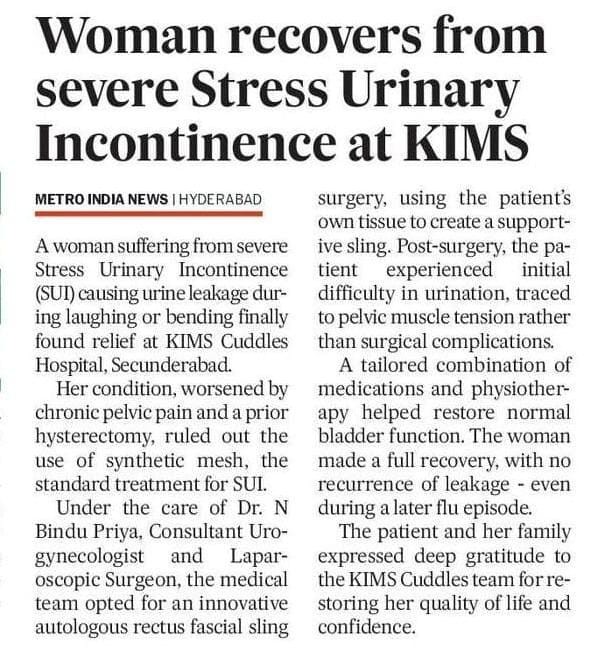A hormonal issue known as Polycystic Ovarian Syndrome (PCOS) affects women during their reproductive years. You might not have regular periods if you have PCOS or perhaps you experience lengthy menstrual cycles. A hormone called androgen may be present in your body in excess.
Along the ovary's outer edge, several tiny sacs of fluid form in people with PCOS. Cysts are what they are. In the tiny cysts filled with fluid are developing eggs. They are known as follicles. The follicles stop releasing eggs on a regular basis.
There is no recognised cause for PCOS. Losing weight and receiving early diagnosis and treatment may help to reduce the risk of developing long-term consequences like type 2 diabetes and heart disease.
Symptoms of PCOS:
PCOS symptoms frequently appear around the time of the first menstrual cycle. Sometimes, after having periods for a while, symptoms appear later.
Signs of PCOS
Inconsistent periods: A common symptom of PCOS is having few or irregular menstrual cycles. The same goes for experiencing periods that are longer than usual for a period or that last several days. One possibility is that you go through the year with less than nine periods. Furthermore, such periods might be spaced out by more than 35 days. A pregnancy may be challenging for you.
Excess androgen: Excessive facial and body hair may come from high androgen levels. This condition is known as hirsutism. Male pattern baldness and severe acne can also occur occasionally.
Ovarian polycysts: Perhaps your ovaries are larger. On the ovary's border, many follicles carrying immature eggs may form. It's possible that the ovaries don't function properly.
The signs and symptoms of PCOS are often more severe in obese individuals.
Complications of PCOS
- Infertility
- Gestational diabetes or high blood pressure while you are pregnant
- Miscarriage or premature birth
- Non alcoholic steatohepatitis — a severe inflammation of liver caused by excess fat cells
- Metabolic syndrome — Excessive blood pressure, high blood sugar, and bad cholesterol
- Type 2 diabetes or prediabetes
- Sleep apnea
- Depression, anxiety and eating disorders
- Cancer of the uterine lining (endometrial cancer)



















